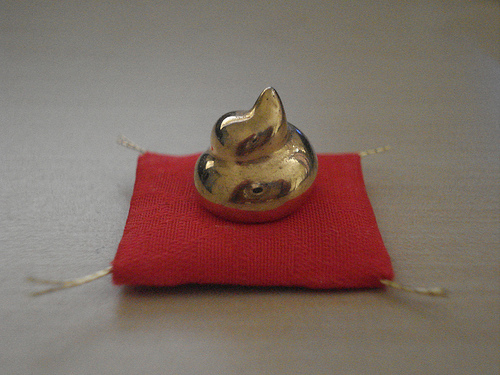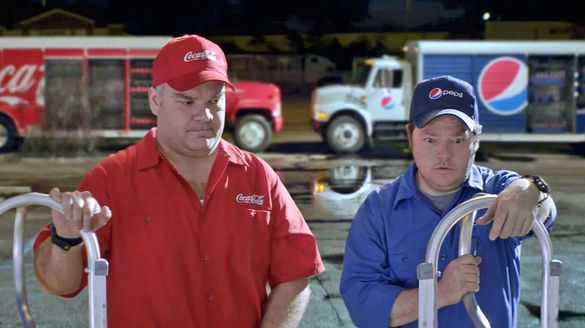Every year, I am drawn inexorably to the ads that play during the Super Bowl. Every year, when I am exposed to the stew of crude misogyny, cornpone nostalgia, martial sentiment, and the overweening assumption that all of life’s meaningful moments are tied to commercial products, I despair for humanity. But there’s always one or two that are interesting.
This year the most interesting ad, however, didn’t run during the Super Bowl because CBS canned it. Here it is:
As you can probably guess, CBS reportedly scrapped it because it directly criticizes Coke and Pepsi, which were also among the game’s many sponsors. (SodaStream ended up airing a milder, less confrontational ad during the SuperBowl.)
What’s interesting to me is that SodaStream is pushing for expansion in the U.S. (most of its sales are in Europe) with an explicitly environmental message. It’s not about taste, or variety, or quality; it’s about reducing the use of plastic. In a statement, SodaStream International was downright belligerent about it:
SodaStream empowers consumers to make their own fresh soda at home in seconds, without the devastating environmental impact of plastic soda bottles and cans, which litter our parks and oceans. Our ad confronts the beverage industry and its arguably out-dated business model by showing people that there exists a smarter way to enjoy soft drinks. One day we will look back on plastic soda bottles the way we now view cigarettes; as a dangerous vice, not as an easily-accepted feature of everyday life.
That is some powerful language. It’s not just about cutting down on waste at the margins, getting a bit “greener.” It’s about an entire product category — a ubiquitous product category — being illegitimate, morally unacceptable.
This is the kind of thing that mainstream environmental groups are terrified to say. They are hypersensitive about questioning consumer choices or lifestyles in any but the most gentle, cheerful, not-that-there’s-anything-wrong-with-that sort of way. They fear backlash, probably with good reason.
But a company that is pushing an alternative product can get away with it. It’s not that the message itself is any different, it’s just that a private company enjoys a certain degree of leeway. The company’s financial interest, in an odd way, protects it from the kind of resentment that greets do-gooders when they say the same things.
I wouldn’t want to overstate this, or call it a trend yet, but one can envision a kind of Nixon-goes-to-China thing happening with the cultural push against overconsumption and waste. The Sierra Club can’t tell you that we’ll some day view private car ownership the way we now view cigarettes, but a car-sharing company might. NRDC can’t tell you that we’ll some day view coal electricity the way we now view cigarettes, but a solar company might.
Companies selling us de-materializing and de-fossilizing products might end up being the ones best able to sell the de-materializing and de-fossilizing message. Weirder things have happened.




